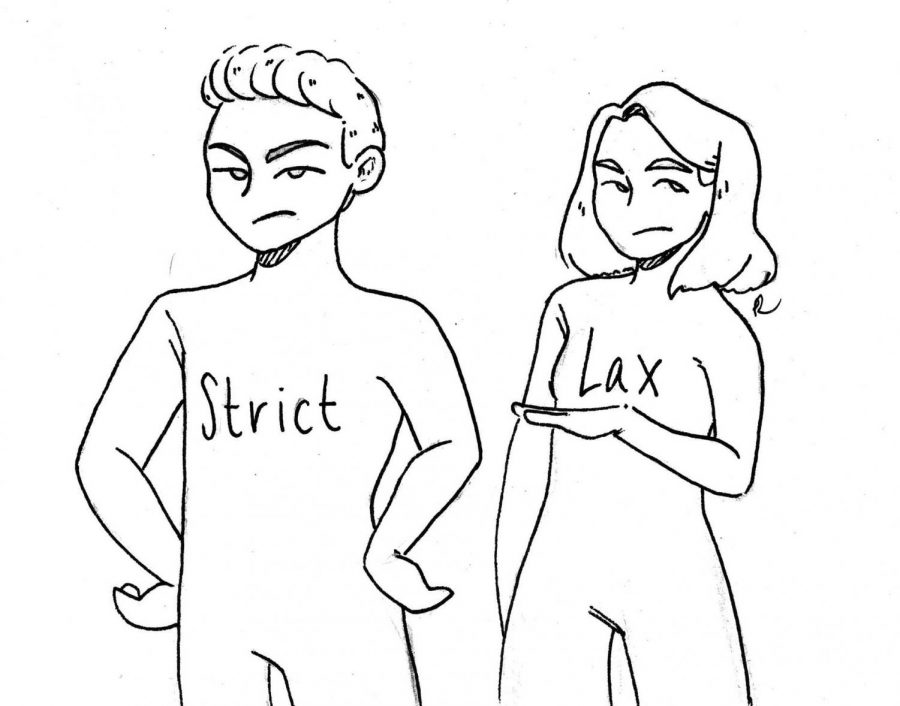Staff, students reflect on parenting styles: While people differ, some parenting styles pose negative effects on children, teens
February 26, 2020
Several kids go through the ‘I hate my parents’ phase because they weren’t allowed out on a school night or they got their phone taken away. But sometimes, it’s not just a phase and the way a parent raises their child may produce harmful effects in their child’s future.
“I believe that all the pressure and lectures from a parent can affect the path a kid may take. When a parent is strict with their child, that child may tend to become trapped within themselves and not be able to feel certain things that a child with more carefree parents can,” Kristina Ceballos, senior, said.
According to psychologytoday.com, parenting styles do impact a child’s future. If the child has neglectful parents, they will most likely have trouble following the rules, which affects their decision making throughout life.
“I would want to actively be in my child’s life, whether it be something as simply as asking them how their day at school was or some as large as going to every game, concerts, etc,” Destiny Basham, senior, said.
According to brighthorizons.com, authoritarian parenting is strict while authoritative are perceived as more reasonable and nurturing. Permissive and uninvolved are the in between where permissive doesn’t care what the child does, but uninvolved is where the child has ‘free range.’
“Parenting styles can also create environments where children wane: low esteem, don’t value education, lack problem solving skills, feel unwanted, feel unsafe, become apathetic, etc. This type of parenting (Authoritarian, Permissive & Uninvolved) promotes confusion in children. Children that are sad, and angry and are less likely to be happy or successful,” Lynda Clark, math teacher, said.
Sometimes there is an emotional disconnect between parent and child which may lead the child to drift away or develop feelings of disdain towards the parents. The parent may not realize that they are causing a negative effect on the child, but once the rift has been created, the child may hold the grudge as they grow older.
“I wish my parents were more understanding and would listen to what their kids have to say,” Ceballos, said. “I would try and understanding my kids and help them live their life in the best way.”
Parenting starts in the home but sometimes it is clear when a parent’s style transfers into the outside world. Specifically, within the school walls Julie Bortoli, counselor, says that she has high expectations of her children to do well in school and expects them to attend school daily.
“When a student knows that certain behaviors will not be tolerated, they tend to be more obedient.” She attributes her parenting style to her parents. “My parents were also very strict. I was never in trouble in school and only missed when I was ill. I can remember being 16 and thinking that my parents were over the top and senseless. Now, as a parent myself, I totally understand and appreciate their efforts,” Bortoli, said.
Bortoli takes what she has learned from her parents to help guide her children. For other parents, they are trying to raise their children in order to prepare them for the real-world when they grow older.
“Since they’ve gotten older, we do allowance, so they lose money whenever they behave inappropriately or make bad choices. Just like real life; you screw up, you lose your money,” John Smith, government teacher, said.
On top of all this, it’s also good to keep in mind that children are all different and need special attention in specific areas.
“[Children] have different personalities, which makes it fun for the parents,” Nicole Walker, physics teacher, said. She says despite their differences, all children need to learn from their consequences because the parents can’t always be there to bulldoze their problems in life.
While some parents such as Smith believe in punishment such as taking away allowance, others find it beneficial to show their children what they expect and have a set of rules, while allowing them to explore on their own.
“I believe that children should have guidelines/rules to follow, but I also value the opinions of my children. Parents should model the good behavior that they expect from their children,” Clark, said.




